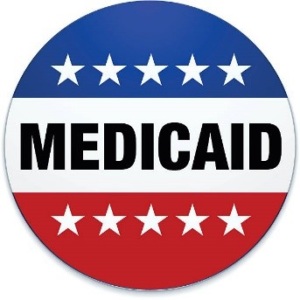NAMD’s annual conference wouldn’t be what it is without you
Unwinding and opportunities for sustained innovation were a highlight of the gathering and a bellwether for ongoing work.
Author
- Kate McEvoy
Dear colleagues: It was both a delight and a privilege for all of us at NAMD to see so many of you at our fall conference in October, whether that was in-person or virtually. For me, the meeting reflected extraordinary curriculum around both the now and the path forward in Medicaid, as well as precious opportunities to connect and affirm our working partnerships.
Heartfelt thanks to all of the state leaders (Lisa Lee, Lynnette Rhodes, Beth Tinker, Brooke Greenky, Susanna Snyder, Leslie Hoffmann, Laurie Hintz, David Welsh, Ryan Moran, Traylor Rains, Valerie Huhn, Fatmata Williams, Palav Babaria, Nyree Essence Orleana Modisette, Cheryl Roberts, Jacey Cooper, Jen Strohecker, Melisa Byrd, Tara LeBlanc, Lisa Sbrana, Melissa Wolf, Ryan Van Ramshorst, Kristine Herman, Dana Weiner), alumni (Marie Zimmerman, Jami Snyder, Toby Douglas, Tracy Johnson, Stephanie Muth) and esteemed partners (Dan Tsai, Joan Alker, Pia Long, Laurie Zephyrin, John Palmieri, Diana Berry, Jai Seunarine, Karen Llanos, Chris Park, Jennifer Tolbert, Martha Sanchez, Teran Carter, Manny Coleman, Marco Lima, Jazmine Wildcat, Mary Sowers, Jennifer Bowdoin, Liz Weintraub, Vikki Wachino, DeAnna Hoskins, Heather Howard, Dante DeAntonio, Jocelyn Kiley, Josh Sharfstein, Regina Crider, Barbara Moore, Martha Roherty, Clair Benitez, Sarah Cannon, Leticia Palau-Armeria and Chiquita Brooks-LaSure) who served as faculty.
Thanks and cheers, also, to the remarkable staff at NAMD, each of whom has instrumentally moved forward the work of the organization: Karen Seaver-Hill, Tess Moore, Lindsey Browning, Neda Jasemi, Jack Rollins, Hannah Maniates, Dawn Cutler-Tran, Typhani Short, Michele Ames, Dianne Hasselman, and Stephany Zabala. And finally, thanks to our event partners, ARB: Anne Michaels, Roxanne Legere, Stephen Stephens, Chris Greenslade, Ashley Sarris, Rainer Madigan.
Whether you were with us or not, here are three key reflections:
We ARE the Big “M”

As Administrator Brooks-LaSure commented at the convening, Medicaid truly is the big “M” among its peers (Medicare, Marketplace). Here’s a “by the numbers” look at that reality:
- As of June, Medicaid was serving 85.6 million of our fellow Americans, 35 million of whom are children;
- Medicaid supports four in 10 births (and a much higher incidence in cities and distressed municipalities);
- Medicaid provides access to care for two thirds of older adults and people with disabilities;
- Medicaid is the principal payer of long-term services and supports; and
- Medicaid is the United States single largest payer of behavioral health services.
In short, Medicaid is a fulcrum point of our continuum of health insurance coverage options. And, while unwinding remains our predominant focus, Medicaid’s role as a driver of innovation for behavioral health integration, maternal health, health-related social needs and so much more continues apace. Medicaid leaders and their many partners – members, providers, managed care plans, community-based organizations and advocates – are contributing to access, utilization, and improved health outcomes, but also the economic security of millions.
This is a watershed year for Medicaid during which we are reckoning with and addressing the many challenges around the unprecedented nature of unwinding. Major areas of continued focus include connecting with people in a clear and compelling way when they most need information on eligibility and covered services, streamlining processes and enabling coverage continuity for eligible people, and moving forward the complex and interrelated strands of systems modernization. But even as this is true, Medicaid leaders are also advancing and applying learning from the public health emergency to permanently embed new flexibilities (e.g. telehealth, long-term services and supports options), adopt interventions to better support birthing people, directly address health-related social needs and improve the trustworthiness of health services in support of better outcomes for people.
Special kudos to the three recipients of the 2023 NAMD Spotlight Awards, who were chosen by a panel of their peers including Dinorah Collazo-Ortiz (Puerto Rico), Mike Randol (Montana), Sarah Fertig (then of Kansas), and Janet Mann (Arkansas): The Maryland Medicaid program for its Healthy Babies initiative, the Georgia Medicaid team for its Pathways to Coverage waiver, and the Hawaii Medicaid leadership for their inspired and heartfelt teamwork during the Maui wildfire tragedy. Each of them clearly demonstrate Medicaid’s impact on people.

We benefit so much when we hear directly from members
In context of their work on unwinding, and maternal and behavioral health, State and territory leaders are actively prioritizing means of directly engaging people served by the program. An incredible recent example of this was the insight, lived experience, and frankness brought by a self-moderated panel of young adult advocates at our fall conference – including members of the Young Invincibles (Martha Sanchez and Teran Carter of Ohio) and ND4Y Changemaker (Jazmine Wildcat of Wyoming, Manny Coleman of Maryland and Marco Lima of Rhode Island).

At the core of what they told us: Medicaid is invaluable; talk to people who use the program to ask what they need; don’t generalize experience; listen. And more specifically:
- Youth need practical, easily navigated care management support with their co-occurring medical and behavioral health needs and life circumstances.
- They also need specific, situational, relevant help in understanding the Medicaid renewal processes. None of our panelists were familiar with the term “unwinding.”
- They need better, clearer information on the scope of covered services. A compelling example was that not all members of the panel were aware that non-emergency medical transportation is covered and available to them.
- They need opportunities to share their opinions and feedback in the company of peers with whom they feel comfortable.
- They would prefer to receive information and connect with others through familiar channels, such as YouTube and TikTok.
Medicaid leaders share the goal of advancing Medicaid policy and practice across the country
As we saw across our convening, Medicaid leaders are actively learning from unwinding data and experience, issue spotting and responding to feedback from members and partners, and proactively collaborating with both federal partners and the myriad entities that are linking arms in this work. A notable partner in this work has been State Health & Value Strategies, which has continued to billboard capsules of evolving best practice work by states in its monthly States of Unwinding report.
There is also important, generative work going on to craft policy in so many domains of the Medicaid program. While there is a lot of alignment on the aims that motivate this work, we are also acutely conscious of the complicating factors of resource constraints, competing priorities and workforce shortages (both civil and provider) at the state and territory level. Reflecting these realities, NAMD produced a summary of proposed access and managed care rules. Our full comments on CMS’s proposed access rule and the proposed managed care rule are also available. We also reinvigorated close working relationships with sister associations ADvancing States and NASDDDS to produce a toolkit on public health emergency authorities around long-term services and supports and also joint comments on the access rule. Later in the year, staff also drafted comments on proposed rules concerning the Medicaid drug rebate program and minimum staffing for skilled nursing facilities.
NAMD also continued to convene working affinity groups of eligibility leaders, Chief Financial Officers and communications leads, and to hold State Solutions Series sessions for our member states and territories. This year, these featured California’s approach with its justice waiver, Colorado’s behavioral health work and other best practices. We also continued a longstanding partnership with the Center for Health Strategies to produce another season of the well-regarded Medicaid Leadership Exchange on topics including cross-agency partnerships and a terrific conversation with Colorado Member Advisory Council member Samantha Fields.
Many of our directors also contribute insight and perspective in national forums, here are just a few examples:
- Allison Taylor (then of Indiana), Jay Ludlam of North Carolina, Liz Matney of Iowa, Jason McGill of Washington, and Jenn Jacobs of New Jersey were featured speakers at the Spring AHIP Medicare, Medicaid, Duals and Commercial Markets Forum
- Cheryl, Jenn and Jay also served as panelists for a session for the American Health Law Association Institute of Medicare and Medicaid Payment Issues.
- Sarah Aker of North Dakota, Juliet Charron of Idaho, Jacey Cooper of California, Jennifer Strohecker of Utah and Gui Woolston of Connecticut graduated from the Center for Health Care Strategies/Robert Wood Johnson Medicaid Leadership Institute
- Cindy Beane of West Virginia and Lisa Lee of Kentucky were featured during a major NASHP convening on behavioral health
- Cheryl Roberts of Virginia, Lisa and Dana Hittle (then of Oregon) served as featured speakers at the NASHP conference in August
- Cindy also participated in an August invitational meeting at the White House on food security and represented NAMD at an anniversary event hosted by the Center for Evidence-Based Policy
- Lynnette Rhodes, Traylor Rains and Ryan Moran of Maryland were featured panelists at the MHPA Fall Conference
Stay Informed
Drop us your email and we’ll keep you up-to-date on Medicaid issues.